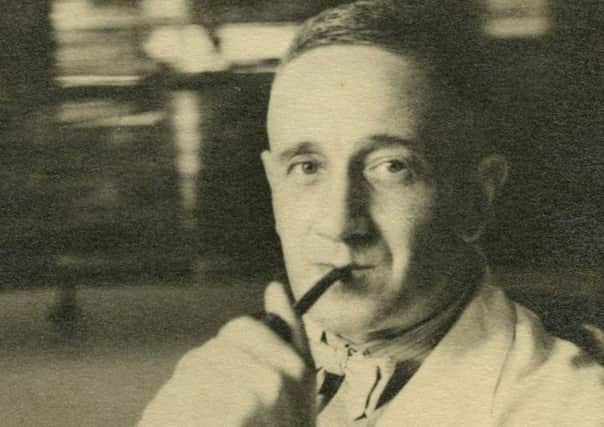Edinburgh war hero's medal set to sell for £150,000


The decoration – the highest gallantry award for civilians – was presented to the widow of Edinburgh man John Fraser by George VI at Buckingham Palace in 1946, three years after Fraser’s death in Hong Kong.
It is considered arguably one of the most important and poignant gallantry awards of the Second World War.
Advertisement
Hide AdAdvertisement
Hide AdThe medal in its Royal Mint case, along with his leather suitcase containing the last letter he wrote to his wife, addressed to “my dearest darling”, is being sold by Fraser’s grandchildren.
They will go under the hammer at Dix Noonan Webb auctioneers in London on July 22, in a single lot expected to fetch £120,000-150,000.
Fraser, who was born and educated in the Capital, was a civil servant who joined the government in Hong Kong in 1919.
By the time of the Japanese invasion in December 1941, he had risen to become Civilian Defence Secretary and a member of the Executive Council in the British colony.
Advertisement
Hide AdAdvertisement
Hide AdFollowing the fall of Hong Kong, he was incarcerated in the Civil Internment Camp at Stanley where for the first few months he was the senior British government representative.
He organised escape plans and a clandestine wireless service and succeeded not only in receiving news from outside but also in getting important information out of the camp.
As a senior British official he was fully aware of who among his fellow captives was involved in these activities.
He was equally aware of the consequences that he would suffer if he was caught.
Advertisement
Hide AdAdvertisement
Hide AdEventually he was arrested and subjected to prolonged and severe torture by the Japanese, who were determined to obtain information from him and, in particular, to implicate all those in the camp who had been involved in clandestine activities.
George Wright-Nooth, a Hong Kong police officer who was involved in smuggling food and messages in and out of the camp and knew where one of the illegal radio sets was, later wrote that he was saved from certain execution by Fraser’s incredible courage.
Writing in his memoires, Write-Nooth recalled: “He was a small, somewhat mild-looking civil servant of 47 called John Fraser.
“He went to his death crippled by torture and beatings, his body emaciated and bent, virtually unrecognisable as the man he had once been. His was the triumph of the spirit over physical torment.”
Advertisement
Hide AdAdvertisement
Hide AdFraser and 31 other prisoners – including one woman – were sentenced to death after a show trial at which they were neither represented nor allowed to speak in their own defence.
Fraser’s wife, Kathleen, had been evacuated from Hong Kong with their sons, Tom and Ian before the Japanese attack. On the day of his execution, October 29, 1943, Fraser wrote to her: “My dearest darling. This is my last letter . . . Remember the only thing I cared about was you and the boys. Everything else gave way to that. My dearest love to you and Tom and Ian. From your husband. John.”
The letter was discovered, with the rest of his effects, in a battered suitcase that was returned to Kathleen after the war. The suitcase and a copy of the letter are included in the lot to be auctioned.
David Erskine-Hill, auctioneer at Dix Noonan Webb, said: “Such was the appalling nature of his injuries and suffering that pre-war acquaintances – fellow captives – were on occasion unable to recognise him.
Advertisement
Hide AdAdvertisement
Hide Ad“Yet his indomitable spirit triumphed over the wanton cruelty of his captors for he uttered not a word that would assist them in making further arrests.
“Following another severe beating on the morning of his trial, he faced his persecutors in a display of courageous defiance that was an inspiration to all.”